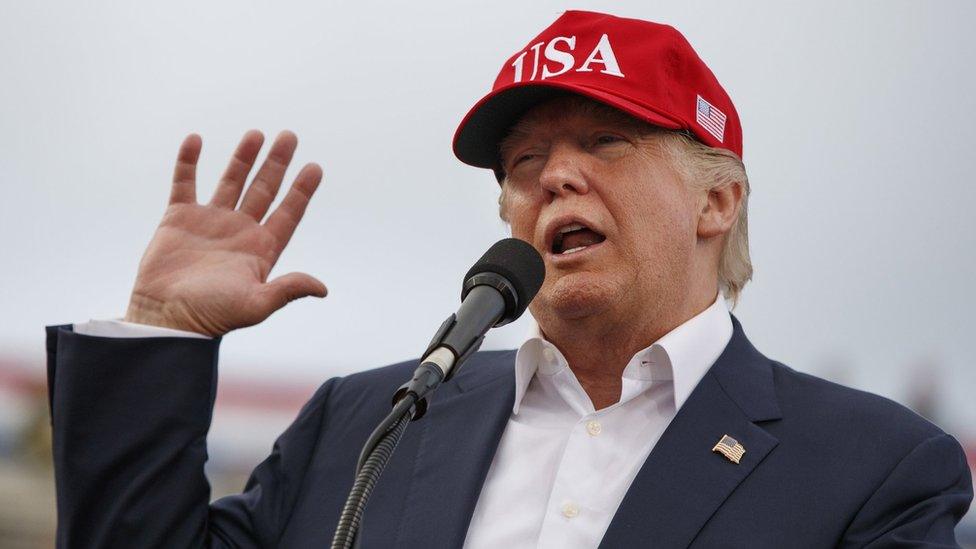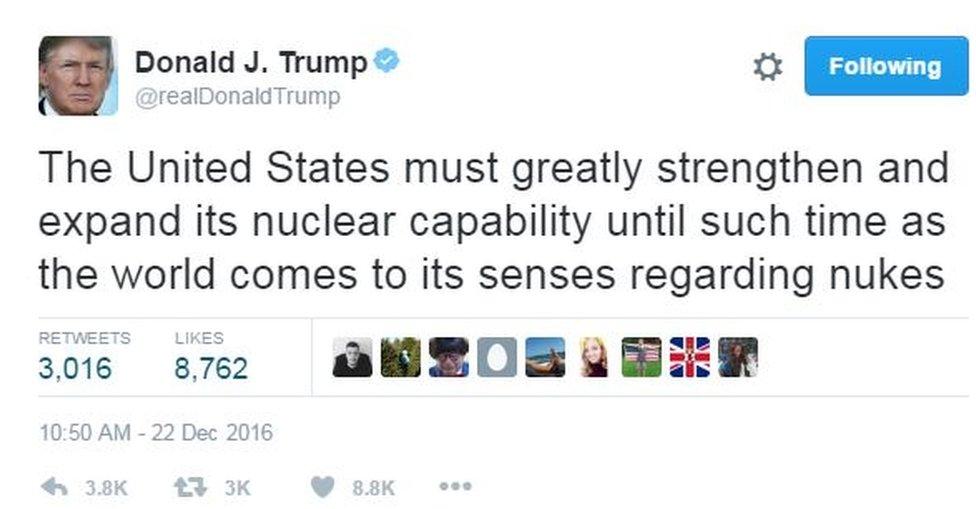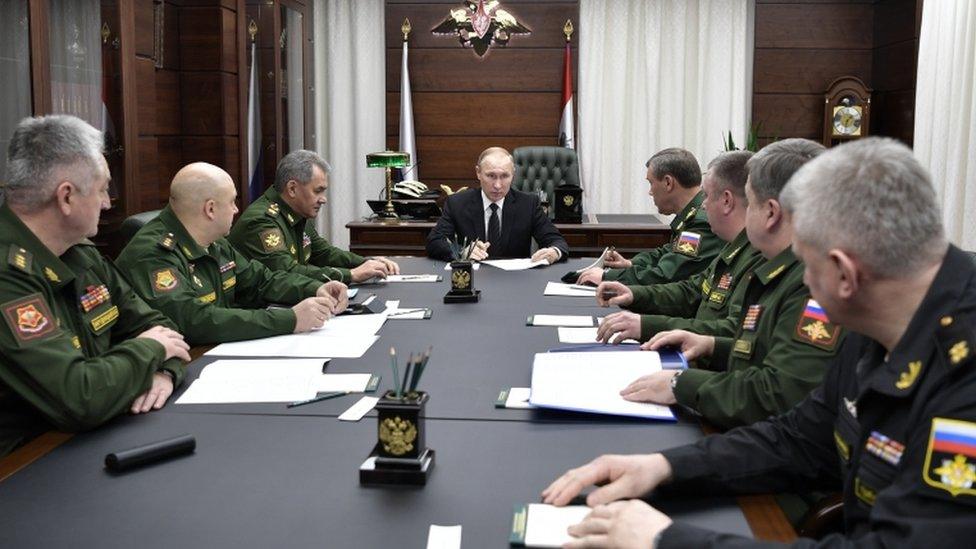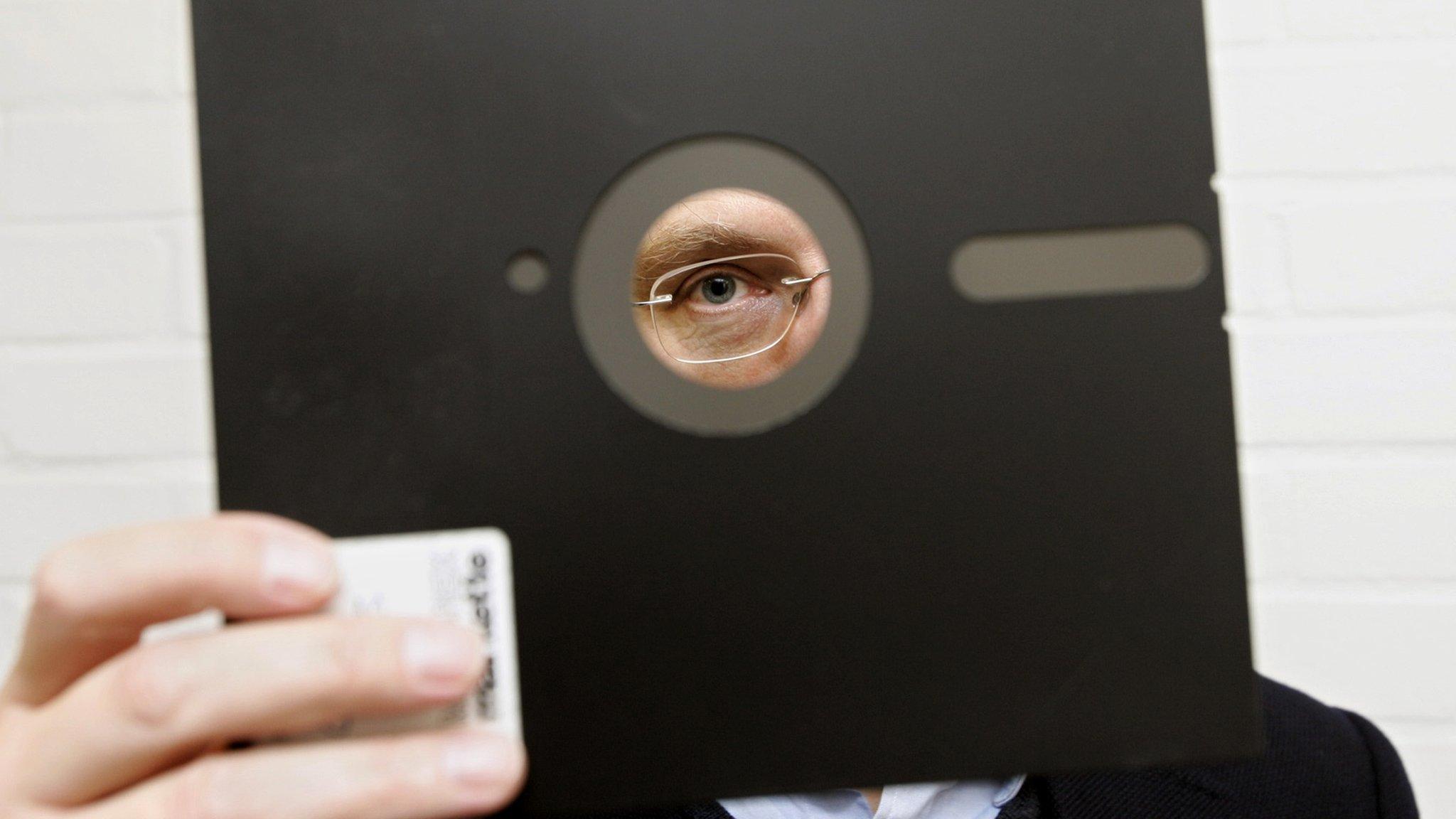Donald Trump: US must greatly expand nuclear capabilities
- Published

A spokesman later said Mr Trump was referring to the need to combat the threat of nuclear weapons
Donald Trump has called for the US to "greatly strengthen and expand" its nuclear capabilities.
The president-elect, who takes office next month, said the US must take such action "until such time as the world comes to its senses regarding nukes".
His spokesman later said that he was referring to the need to prevent nuclear proliferation.
Mr Trump spoke hours after President Vladimir Putin said Russia needs to bolster its military nuclear potential.
The US has 7,100 nuclear weapons and Russia has 7,300, according to the US nonpartisan Arms Control Association.
Mr Trump's comments came in the form of a tweet, giving no other details.

Hours later, Jason Miller, the communications manager for the Trump transition team, explained he "was referring to the threat of nuclear proliferation and the critical need to prevent it - particularly to and among terrorist organizations and unstable and rogue regimes".
Mr Miller also added that the president-elect "emphasised the need to improve and modernize our deterrent capability as a vital way to pursue peace through strength".
Mr Trump's tweet came after President Putin met with his military advisers to review Russian military activities in 2016.

Russia is stronger than any potential foe, Mr Putin told his advisers
"We need to strengthen the military potential of strategic nuclear forces, especially with missile complexes that can reliably penetrate any existing and prospective missile defence systems," Mr Putin said.
Russia, he added "must carefully monitor any changes in the balance of power and in the political-military situation in the world, especially along Russian borders", possibly referring to US missile defences in eastern Europe which the Pentagon says are to counter Iran.
During Mr Trump's campaign he referred to nuclear proliferation as the "single biggest problem" facing the world, but also said he could not rule out using nuclear weapons against Europe.
Mr Trump's defeated Democratic rival Hillary Clinton repeatedly cast her opponent during the campaign as too erratic and lacking in the diplomatic skills required to avoid a nuclear war.
She mocked him by saying "a man who can be provoked by a tweet should not have his fingers anywhere near the nuclear codes".

A new era dawns: By Laura Bicker, BBC News, Washington DC
This is a radical departure from President Obama's current policy.
Mr Trump has offered no further details on his plans but he has hinted in the past that he favoured an expansion of the nuclear programme.
He was asked in interviews whether he would use weapons of mass destruction against an enemy and he said that it would be an absolute last stance, but he added that he would want to be unpredictable.
In contrast, President Obama has talked of the US commitment to seek peace and security without nuclear weapons.
He has sought to reduce the nation's arsenal in favour of more special operations forces and precise tactical strikes.
But in 29 days the nuclear codes and the nation's defence policy will no longer be in his hands.

In interviews before his surprise victory Mr Trump said that other countries should spend more on their own defence budgets, and forgo US protection, because "we can't afford to do it anymore".
He has said he is in favour of countries such as Japan and South Korea developing nuclear weapons "because it's going to happen anyway".
Which countries have nuclear weapons?
"It's only a question of time," he told the New York Timed editorial board, adding that "they're going to start having them or we have to get rid of them entirely."
Mr Trump is spending the festive season at his Mar-a-Lago resort in Florida, where he has been meeting with campaign advisers.
- Published26 May 2016
